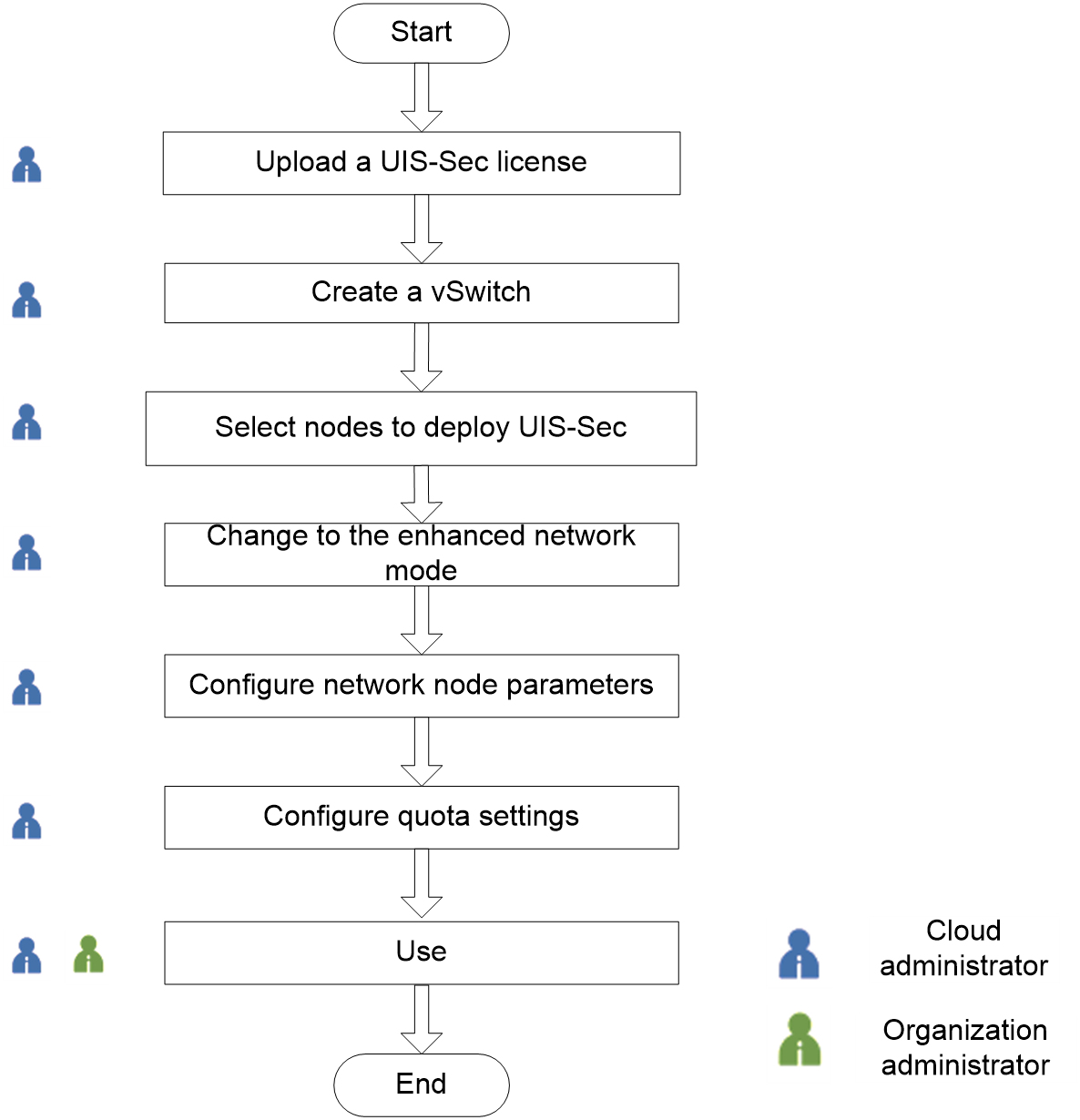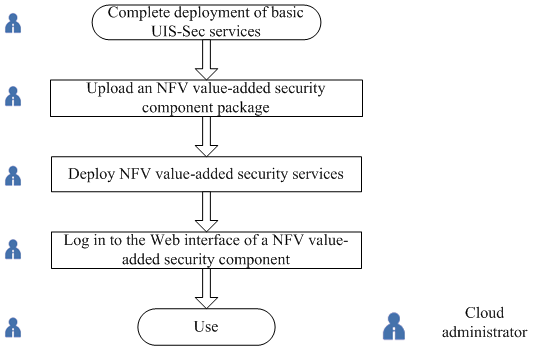Deploy UIS-Sec
Deploy basic UIS-Sec services
UIS provides a UIS-Sec deployment wizard for you to fast initialize and use UIS-Sec.
Figure-1 and Table-1 display the deployment flowchart and procedure descriptions, respectively.
Figure-1 UIS-Sec deployment flowchart
Table-1 UIS-Sec deployment procedure
|
Step |
Description |
|
Upload a UIS-Sec license |
Verify the validity of the UIS-Sec license on the license management page. Make sure that UIS-Sec can be used. |
|
Create a vSwitch |
Create vSwitch vs_gateway on the native host management page. This operation is a prerequisite for deploying the UIS-Sec gateway VM. |
|
Select nodes to deploy UIS-Sec |
Access the target native host to deploy the UIS-Sec component and select a target host to deploy the UIS-Sec gateway VM. |
|
Change to the enhanced network mode |
Change the network mode to enhanced on the network automation page to use services provided by the UIS-Sec gateway VM. |
|
Configure network node parameters |
Configure network enhancement parameters on the advanced feature page, including the number of supported vRouters per node and the number of vLBs per node. |
|
Configure quota settings |
Change security-related quota settings for the private cloud network on the overall planning page. This allows the system to assign advanced service resources, such as router, firewall, and load balancing, to different organizations as needed. |
|
For information about creating a router, firewall, or network, see the corresponding cloud service help. |
Deploy UIS-Sec value-added services
Figure-2 UIS-Sec value-added service deployment flowchart
Table-2 UIS-Sec value-added service deployment procedure
|
Procedure |
Description |
|
Upload the package of the nfv-vfw, nfv-vacg, nfv-vlb, nfv-dba, nfv-vwaf components to the component repository as needed. |
|
|
Deploy NFV value-added security services on the VDC topology page. |
|
|
Log in to the Web interface of a NFV value-added security component |
Log in to a deployed component to configure rules and policies. |

